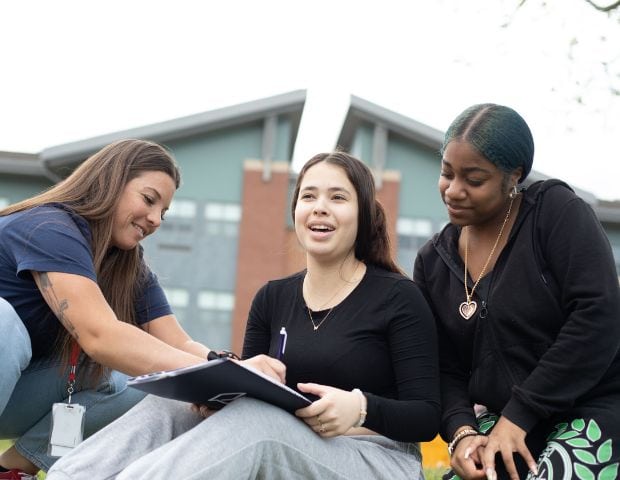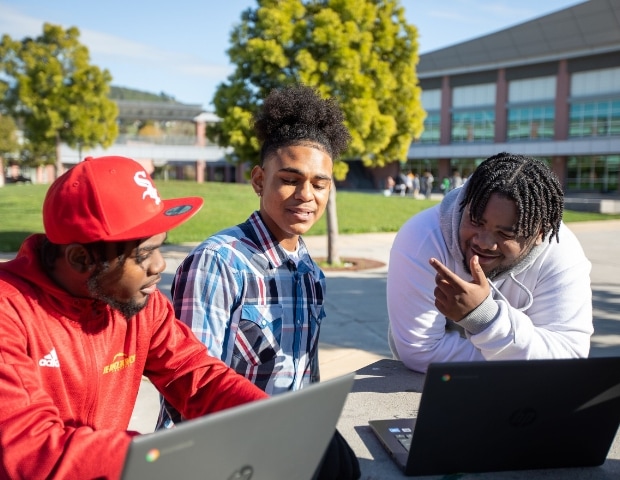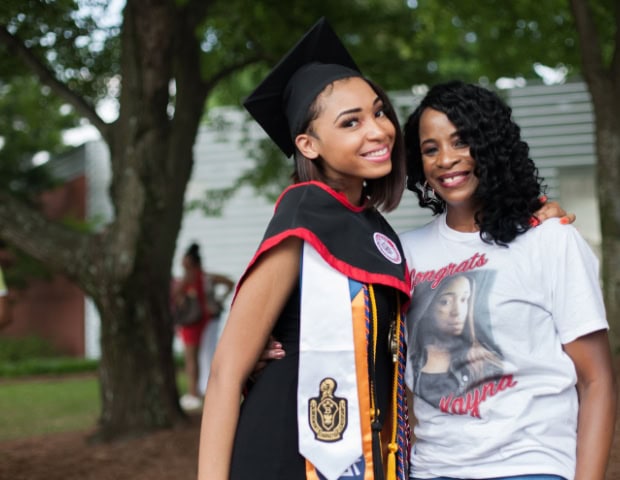Schools across the country want to emphasize college and career readiness on their campuses. In this blog post we will share some creative ways to get students excited about postsecondary choices!
The 5 Must-Have College Readiness Skills
By Monica Selagea
May 22, 2024
Discover the five must-have college readiness skills every student needs to navigate the challenges of college life successfully. These skills help students transition smoothly from high school to college and thrive in their postsecondary journey.
As an educator for over 15 years, I am often visited by graduates who return to share their college experiences. Each graduate comes with a distinct story, but they all have something in common: they weren’t fully prepared to navigate the trials of the college environment. From figuring out finances to balancing academics, each student was faced with a hardship. It’s inevitable that students will face obstacles, but as educators, it is our duty to prepare the students with crucial skills that will help them navigate these challenges.
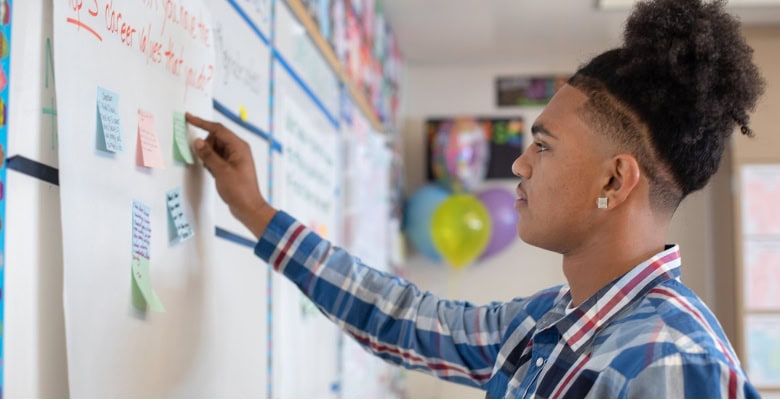
According to research, between the fall semesters of 2021 and 2022, 28.9% of all full-time, first-year students dropped out of college. Financial hardships, social and emotional challenges, academic struggles, and lack of aspiration are all factors that students are faced with during college, especially their first year. Read more about it in the OneGoal study to understand the underlying causes behind students not completing their postsecondary pathway. Transitioning from high school to college is not an easy shift. Naturally, students have adopted habits that are difficult to break when entering a new realm, from the fear of the unknown to the unexpected rigor in academics. In this blog post, we will explore the five must-have college readiness skills that can empower our students to excel academically and navigate challenges that come when transitioning to college
Critical Thinking and Problem Solving
Critical thinking and problem solving skills are imperative for college students. These skills help the student navigate the uncertainties of college expectations and coursework. They must make informed decisions in order to be successful. Let’s begin with the start of college – students must pick the courses they need which is not an easy task. Students must learn to navigate the school’s portal and not only decide on which classes are necessary to take, but also enroll at the right time. These skills come in handy when classes are closed due to space capacity and they must decide which courses they would need to replace — this is effective decision making. There are a myriad of options that can confuse a student. This confusion can be discouraging and dangerous to the student’s degree completion. Making effective decisions through critical thinking can solve problems early on to ensure the success of the student right from the beginning.
These skills are also essential for coursework. The rigor of coursework might feel overwhelming and challenging for the student. Naturally, these skills are developed throughout a student’s high school career and can later be an asset in higher education. From scrutinizing literature to conducting research projects, critical thinking skills come into play in almost every class in college. For example, students will be faced with group work, which can be challenging. These skills are necessary in order to adapt with the group, complete the group assignment, collaborate efficiently or simply communicate when a problem arises. Students will make mistakes and that’s okay! But there is no doubt that these skills will not only empower the student, but also help them adapt to the evolving circumstances of college life.
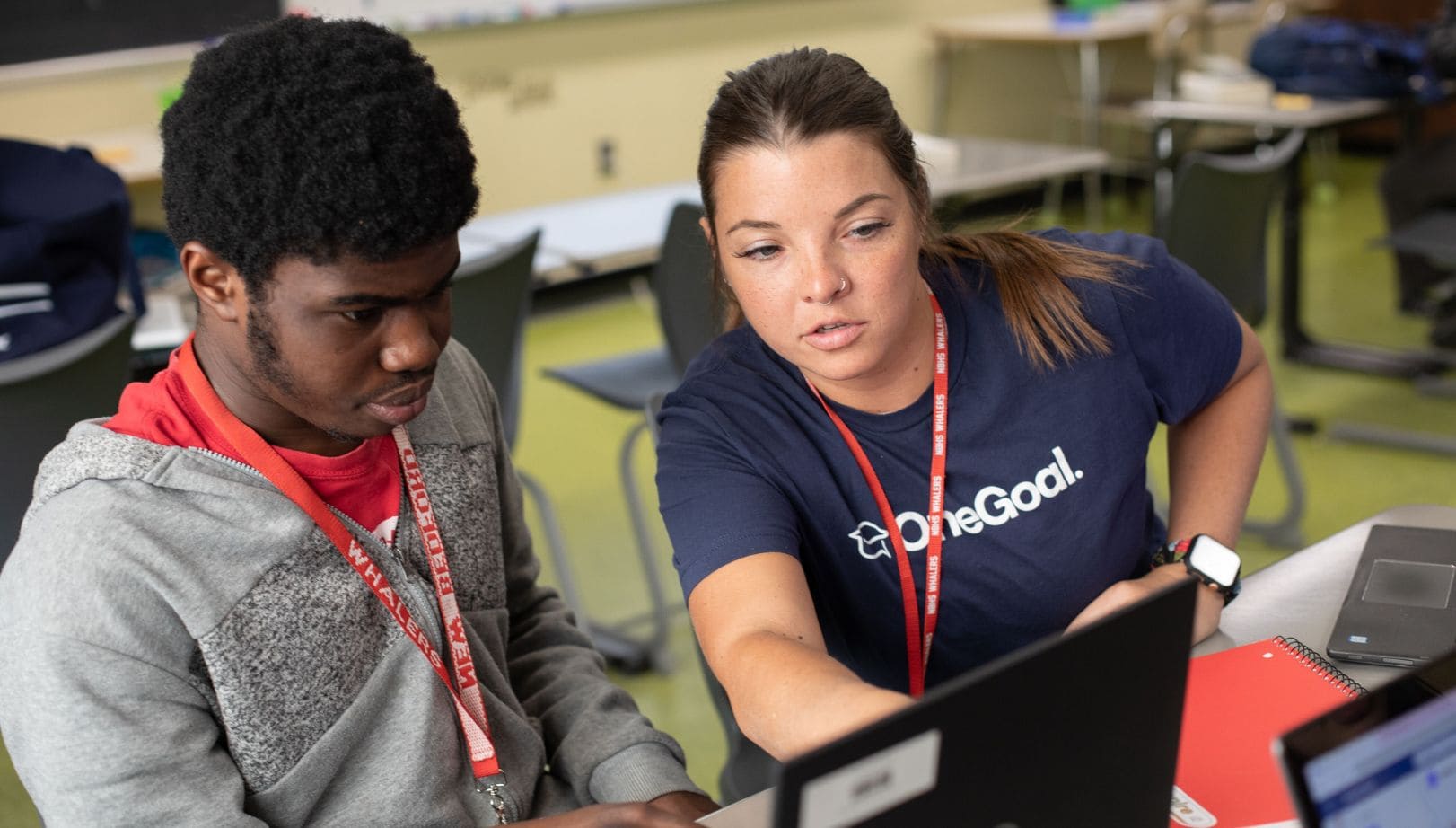
Educators can incorporate strategies for teaching critical thinking in high school in many ways. Some examples are using open-ended questions in assignments, facilitating classroom discussions, incorporating project-based learning, and offering diverse perspectives.
The OneGoal program pushes students to think and plan their postsecondary path. This includes activities in which students do different projects, answer many open-ended questions, and participate in discussions on their plans for after high school.
OneGoal Alum, Huda Ganatra, gave a stirring speech for the 2022 Grad Night celebration event where she shared “By the time I joined OneGoal my junior year at Roosevelt, every decision in my life was made for me by an adult. I think there is an inherent mistrust of young people when it comes to their ability to make decisions for themselves. You can’t even walk down the hall in school without an adult questioning where you’re going and what you’re up to. But the OneGoal classroom environment was the first place where my agency to own my future was assumed from day one. Not only that, my Program Director, Kara Escalante, gave us the tools, support, and guidance to be confident in the choices we were making. All based on my intentions, identity, and values, and not on a prescribed path or outcome.”
Effective Communication
Communicating can be very difficult for students who fear the unknown. But communicating effectively, verbally and in writing, is key to a student’s academic, personal, and social success. In the classroom, a student must know that communication is vital for understanding curriculum and classroom expectations. They must ask questions, express their ideas, and be strong writers in order to ensure their success. Participation is expected in almost every classroom, whether individually or within a group. This includes reaching out to a teacher during office hours or when receiving challenging feedback on an assignment. Students must have the confidence and the professionalism to communicate effectively. They will thrive when this skill comes into play — it is one of the most important skills to have. It not only benefits them in the classroom, but also personally and socially.
College is a time for a student’s personal and social growth and it starts by being vocal. Being social requires a student to be vocal. This can lead to networking, respect, and lifelong friendships. If a student is timid and reserved, they can join a club or a sport in high school to have more opportunities to talk to people. This will build confidence and effective communication will follow.
“Something from my OneGoal class that has stuck with me is the talks and discussions we have among one another. OneGoal has helped me become more comfortable and using my voice in classes. I also feel like I’m entering college with a lot of support.”
Nathalia Deaton, OneGoal Alum
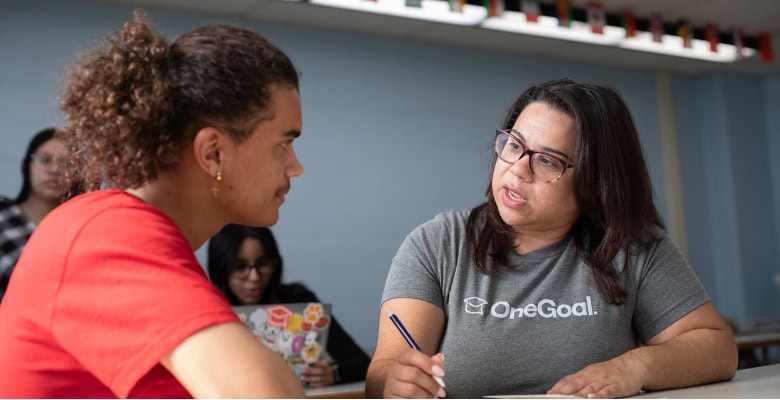
Time Management
Time is precious and in order to enjoy all that college life offers, students should start with being able to balance that time. With effective time management skills, students will be fully engaged in the classroom while enjoying the social aspects of college. There are several ways a student can balance academics and a social life; it all starts with planning. Having a planner is essential — this is a daily reminder of events, assignments, class times, among other important events. A planner can be in the form of a book planner, a calendar or a digital planner from an app. This helps the student to be organized and on track for tasks and commitments. Being cognizant of the time helps the student be on time, avoid procrastination, as well as prioritize assignments and appointments. This is not an easy task! But when college feels overwhelming, balancing time is essential for academic success, and more importantly, for the mental health of the student. Make sure students know that balancing this time includes self-care.
Adaptability and Resilience
For many students, attending college is the perfect time to detach from their norm. It is challenging and it takes time, but eventually, students adapt and become resilient through the challenges. Adapting to college demands, dynamics and challenges can be a struggle for a college student and rightfully so: it’s all new to a student. Most students struggle at the thought of leaving home to live in a college dorm. This can be a scary transition — almost too abrupt. But students must approach this new realm with enthusiasm for a new routine. They will be successful in realizing that this new norm is an opportunity for personal growth, lifelong learning, and a chance to feel independent. Academically, students will have to adjust to more rigorous academics. If a student is struggling, they can seek help from the resources available to them. Colleges offer tutoring and writing centers, or a student can simply make an appointment with a professor. This will help the student embrace new teaching methods and feel empowered to continue seeking help when they encounter a setback. They shouldn’t feel discouraged, but supported! College is a place to grow and persevere from setbacks, which will prepare them as adults in an ever changing world.
Collaboration and Interpersonal Skills
Aside from academics, college is a place where students will grow through connections, collaborations, and relationships with other students, in school clubs, extra curricular activities or in friendships. Forming these relationships and networking is a vital part of thriving in college. It starts in the classroom with collaboration on projects and assignments. Most classes will assign group projects, which will give the student confidence in forming relationships outside the classroom. College is so diverse that students will embrace the cultures and backgrounds of new friends, giving them a sense of belonging. This is extremely beneficial for a student’s mental well-being. Students can also join extracurricular activities to meet new people, learn a new hobby, or play a sport to create positive relationships. This is easier said than done, especially if a student is naturally shy or introverted, but this skill can be carried on into adulthood in a professional environment. It lays the foundation for future professional ventures. It starts with confidence, communicating and participating.
Lunessa, a OneGoal Alum, shared about her college journey: “It was never a sense of me being by myself. I always had my friends from the study group. We always worried together, studied together, and any concerns we had, it was never just me alone. I feel like having a study group or having a support system, other people in your major, is so critical. Because no matter what major you do—you can be in STEM, you can be in business, you can be in anything—it’s going to be hard. College altogether, it’s just hard. There are obstacles every single step of the way. Still, as long as you have a support system other than family (and for me, my OneGoal Program Director and mentor Miss Taylor) with people going through the same thing as you, it’s a whole different type of support that everyone will benefit from.”
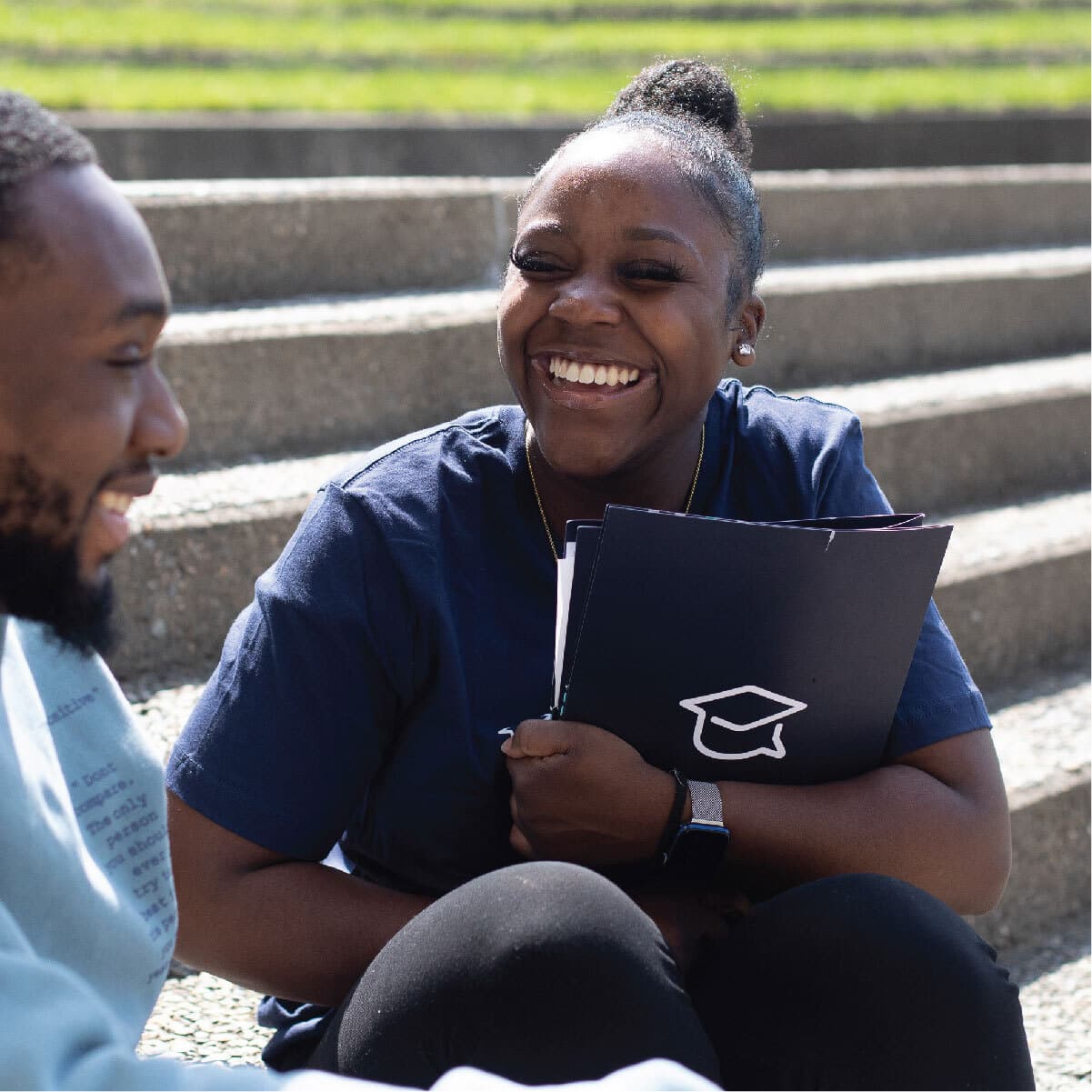
Bonus Ability: Financial Literacy
In high school, students are guided to understand the process of paying for college. However, we need to ensure that students understand the process for the next few years as they progress in college. Students need to be proactive with managing their money in order to be successful. It’s not only tuition and, for some, room and board; there are other fees associated with college, such as books, travel expenses, meals, and individual expenses. Students should contact the campus financial aid department if there is a discrepancy. They should be aware of deadlines so these do not affect their academics. Work-study programs are also available, and students should take this opportunity to save for an emergency or financial crisis.
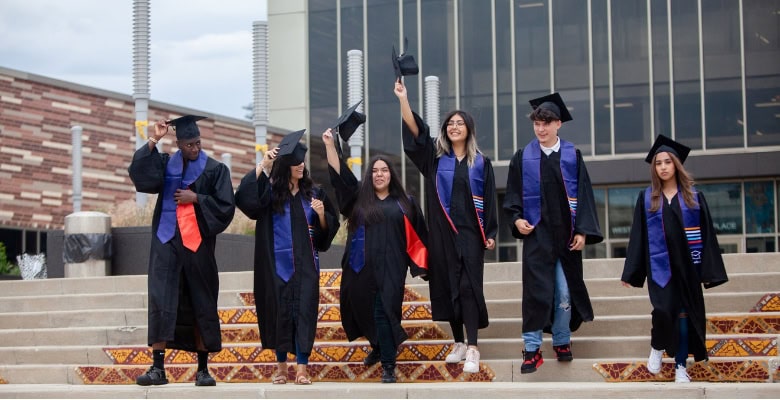
Preparing Students for Their College and Career Journey
The high school counseling team is the heart of the school. Counselors discuss the investment of college, as well as serve the social and emotional needs of students, but schools should also invest in postsecondary access programs l or senior seminar classes to maximize the time students have in order to be fully prepared for college.. Being ready for college should be taught in a meaningful way, with all members of the school’s community involved and invested.
Navigating the trials of college can feel overwhelming, especially in a student’s first year. There are many ways a student can thrive! But with these skills: critical thinking and problem solving, effective communication, time management, adaptability and resilience, and collaboration and interpersonal skills, students will break out of their shell, acclimate to a new norm and be able to not only manage the rest of their years in a college, but flourish into adulthood. Educators can offer advice, but the truth is that the student must be able to navigate these challenges in order to thrive.
Monica Selagea grew up in Chicago and attended Columbia College in Chicago and DePaul University. She is currently a high school teacher in Chicago and a Program Director for OneGoal. She also teaches at the City Colleges of Chicago.

Related Stories
What’s the answer to the opportunity gap? OneGoal offers students the answer to the degree divide by providing them with sustained support during their post-secondary pursuits.
This blog post will explore resources to involve parents in the decision-making process, fostering a supportive environment for career exploration and college planning.
